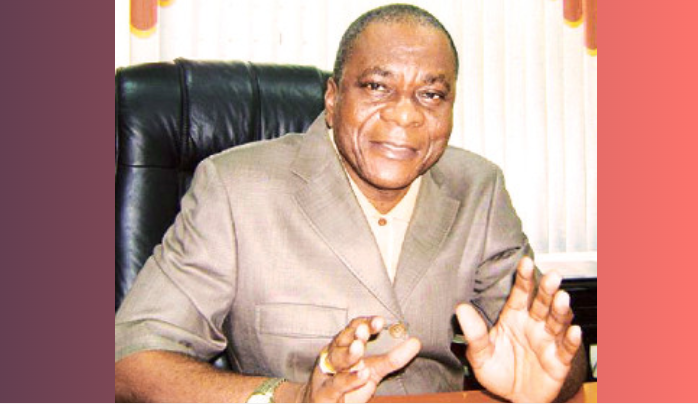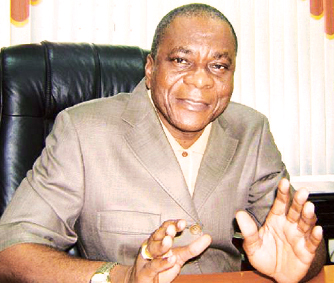
Still battling to wriggle out of a seven-day ultimatum and potential litigation by the Shippers Association of Lagos State (SALS), the Nigerian Shippers’ Council (NSC) faces more trouble as it has been dragged before President Muhammadu Buhari by the National Council of Managing Directors of Licensed Customs Agents (NCMDLCA) over the implementation and charges associated with the controversial cargo tracking note.
NCMDLCA National President, Lucky Amiwero said his association had to take the step because of the adverse economic impact of the so-called advanced cargo tracking note which was once scrapped by the Federal Government in 2011 but reintroduced by the NSC this month.
In a letter dated 16th November 2015 and addressed to President Muhammadu Buhari, Amiwero said, “The negative impacts generated by the introduction of Cargo tracking Note (CTN) necessitated the need for the cancellation as directed by the President and Commander-in-chief in 2011.”
“The Abolition/ cancellation was authorised through the Nigerian Ports Authority’s Circular HQ/ED/M&O/OP/1231/5 of 9th November 2011,” Amiwero stated in the letter titled THE ECONOMIC AND LEGAL IMPLICATION ON THE INTRODUCTION OF INTERNATIONAL CARGO TRACKING NOTE (ICTN) TO THE NATIONAL ECONOMY, a copy of which was made available to SHIPS & PORTS DAILY yesterday.
In the letter which was also copied to the Secretary to the Government of the Federation, Minister of Finance, Minister of Transport and the Comptroller-General of Customs; Amiwero said that the negative impacts generated by the introduction of the CTN in 2010 necessitated the need for its cancellation on the directives of former President Goodluck Jonathan in 2011.
He said the notice of CTN charges given to shipping lines and consignees dated November 2015 by the NSC was a duplication of the process of pre-arrival assessment report (PAAR) Form ‘M’ requirements being implemented by the Nigeria Customs Service (NCS).
According to him, the risk assessment system, PAAR, is sufficient for monitoring cargoes coming into the country, stating that the CTN is a duplication of PAAR.
The frontline Customs agent also noted that the reintroduction of CTN on imports requires statutory backing before it can be implemented.
“The Advanced Cargo Information (ACI) is pre-arrival or advance information process and more or less a security tool covered under the World Customs Organisation to secure and facilitate global trade.
“Advanced cargo information or advance electronic information is a Customs security control process.
“The power to implement advance cargo information is exercised by the Federal Ministry of Finance through Nigeria Customs Service, which is reactivated in the (PAAR),” he stated in the letter.
The NCMDLCA President said the multiplicity of costs on Nigeria-bound imports and exports has negatively impacted on locally manufactured products and the attraction of foreign direct investment, which affects product competiveness.
He urged the government to set up a committee of experts to look into the various charges on import trade in order to streamline them.
Stakeholders including importers, freight forwarding associations and the Manufacturers Association of Nigeria (MAN) have all protested against the additional cost burden imposed by the cargo tracking note implementation. They have all variously called on the Federal Government to suspend the scheme until the controversies surrounding its implementation are resolved.
SHIPS & PORTS DAILY reported yesterday that importers and exporters under the aegis of the Shippers Association of Lagos State have kicked against the payment of charges on the controversial advanced cargo tracking note.
The shippers’ association expressed shock that the controversial cargo tracking note scheme, which was sold by the Nigerian Shippers’ Council as being at no cost to importers/exporters, would now attract charges to be borne by shippers.
“The Nigerian Shippers Council, time and time and again stated in all meetings with shippers and in various media and fora that cargo tracking note would be at no cost to the Nigerian shippers.
“We hold firmly to that public declaration and on that declaration we stand.
“In a letter dated 02/11/20 15 addressed to the Nigerian Shippers Council, we made it clear that “the proposed ACD/ICTN must not attract any costs (direct or indirect) to the importer or exporter of cargo in Nigeria including their agents and partners (local and abroad),” the association said.
Copyright Ships & Ports Ltd. Permission to use quotations from this article is granted subject to appropriate credit given to www.shipsandports.com.ng as the source.

